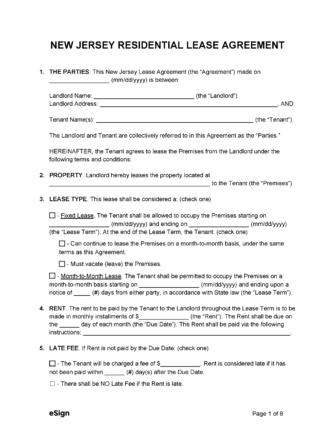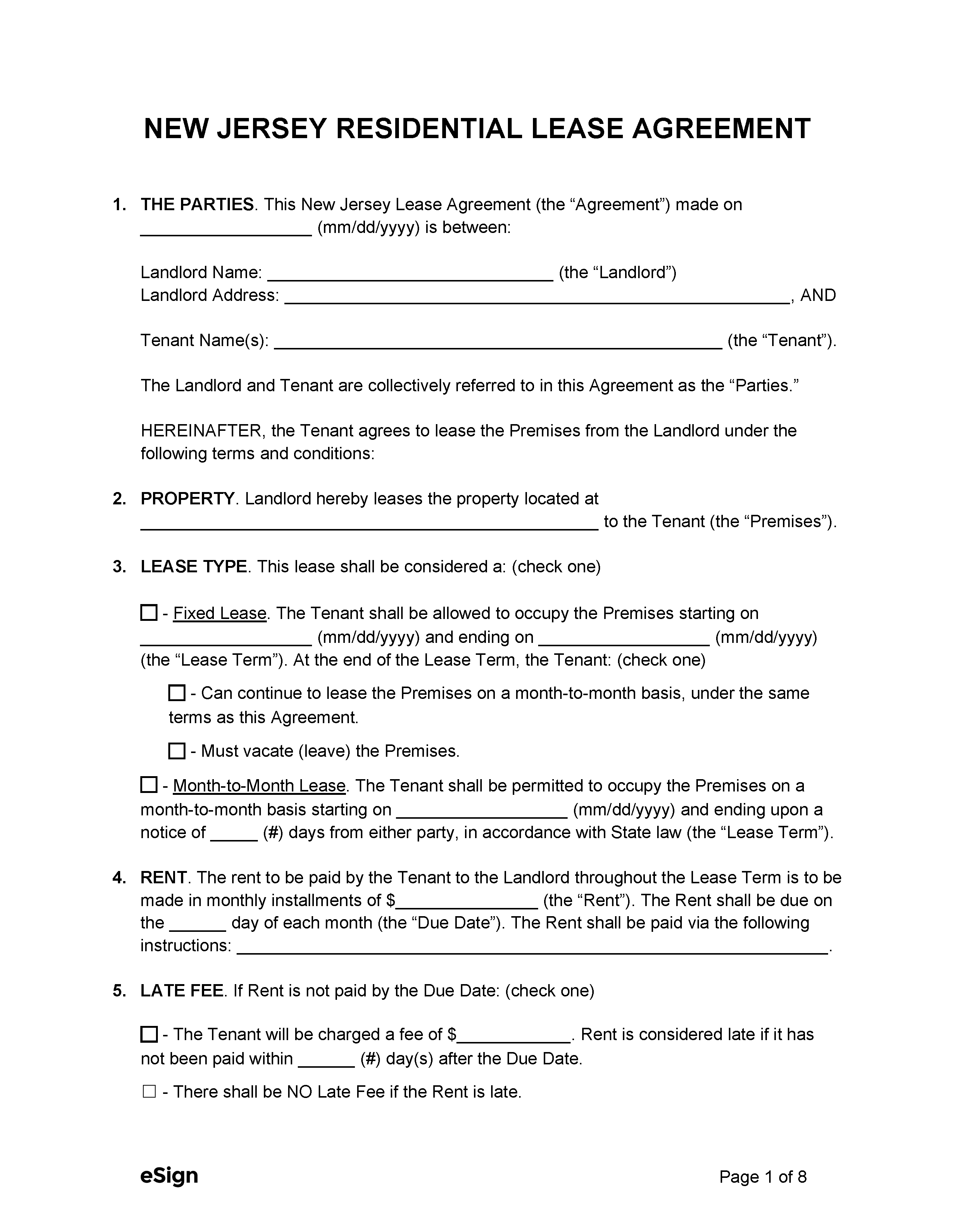
A New Jersey lease agreement allows landlords to sign on tenants to rent out their residential or commercial property. The legal contract establishes all necessary terms of the rental arrangement, including the cost of rent, the frequency of payments, property rules and policies, and the length of the lease term.
A New Jersey lease agreement allows landlords to sign on tenants to rent out their residential or commercial property. The legal contract establishes all necessary terms of the rental arrangement, including the cost of rent, the frequency of payments, property rules and policies, and the length of the lease term.
PDF Download
A New Jersey lease agreement allows landlords to sign on tenants to rent out their residential or commercial property. The legal contract establishes all necessary terms of the rental arrangement, including the cost of rent, the frequency of payments, property rules and policies, and the length of the lease term.
4.8 | 117 Ratings Downloads: 17,602
Rental Application – With this form, applicants will provide their rental/employment history and give consent to a background check.
Maximum Amount ($) – The most that a landlord may demand is one and a half months’ rent for the first year. The landlord has the right to charge 10% of the current deposit amount as an additional deposit each following year. [5]
Collecting Interest – Landlords are required to invest the security deposit in a money market fund or place it in an interest bearing account and collect interest on behalf of the tenant. [6]
Returning to Tenant – Security deposits must be returned to the tenant within 30 days of their lease’s termination. [7]
Itemized List Required? – Yes, an itemized list of deductions made must accompany the security deposit when returned. [8]
Separate Bank Account? – Yes, landlords must place the deposit in a separate account. [9]
General Access – At least one day’s notice must be given to the tenant before the landlord or property manager enters the property. [10]
Emergency Access – Entry without notice is permitted in safety or structural emergencies. [11]
Grace Period – None, although senior citizens are granted a five-weekday grace period (excluding federal holidays). [12]
Maximum Late Fee ($) – There’s no max late fee in New Jersey.
Withholding Rent – If a landlord fails to maintain a dwelling in a suitable living condition, a tenant can repair any vital problems and deduct the amount from the rent. [13]
Rent Increase Notice – The landlord must give the tenant at least 30 days’ notice before increasing the rent. [14] This notice must be delivered along with a Notice to Quit at the end the lease term.
Non-Payment of Rent – New Jersey landlords can file to evict a tenant without notice if they fail to pay rent. [15]
Non-Compliance – A 1-month notice to quit is used to evict tenants who violated their lease terms. [16]
Lockouts – It is illegal for landlords to change the unit’s locks without a court-issued warrant for possession. [17]
Leaving Before the End Date – Ending a lease early may require the tenant to pay the remaining months of rent if the landlord cannot re-rent the dwelling before the end date. [18] However, in the following cases, ending a lease early may be permitted without penalty:
Month-to-Month Tenancy – A month-to-month tenancy can be terminated by providing the other party a 1-month notice to quit. [23]
Unclaimed Property – Landlords may dispose of a tenant’s personal belongings provided all the following applies: